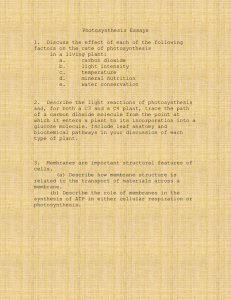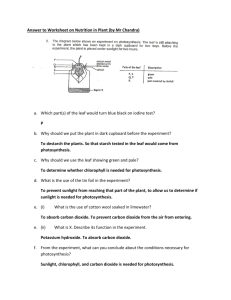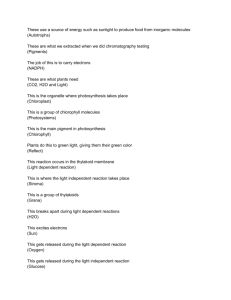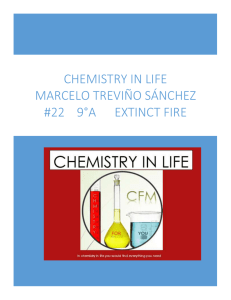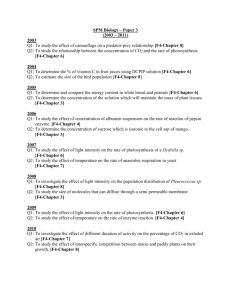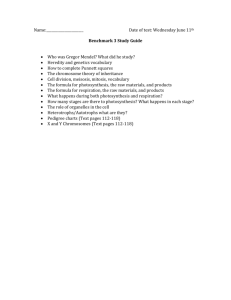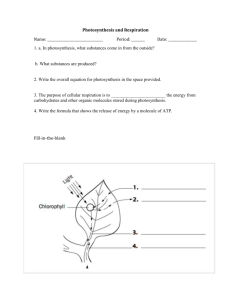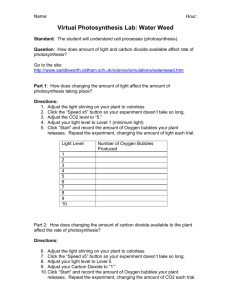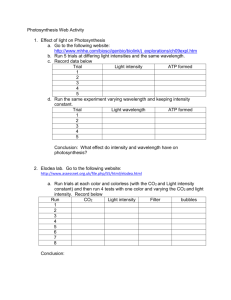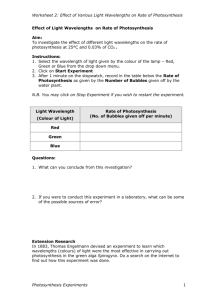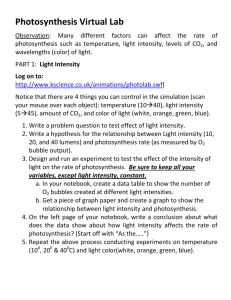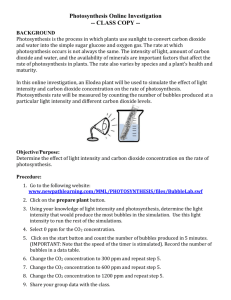presbyterian high school
advertisement
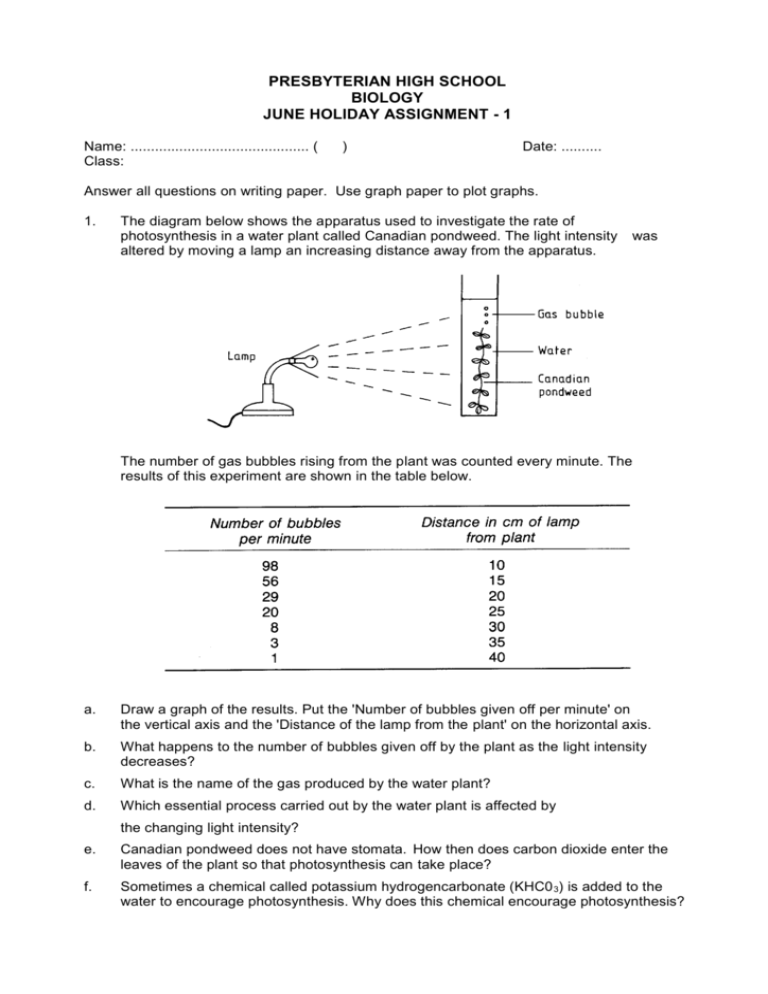
PRESBYTERIAN HIGH SCHOOL BIOLOGY JUNE HOLIDAY ASSIGNMENT - 1 Name: ............................................ ( Class: ) Date: .......... Answer all questions on writing paper. Use graph paper to plot graphs. 1. The diagram below shows the apparatus used to investigate the rate of photosynthesis in a water plant called Canadian pondweed. The light intensity altered by moving a lamp an increasing distance away from the apparatus. was The number of gas bubbles rising from the plant was counted every minute. The results of this experiment are shown in the table below. a. Draw a graph of the results. Put the 'Number of bubbles given off per minute' on the vertical axis and the 'Distance of the lamp from the plant' on the horizontal axis. b. What happens to the number of bubbles given off by the plant as the light intensity decreases? c. What is the name of the gas produced by the water plant? d. Which essential process carried out by the water plant is affected by the changing light intensity? e. Canadian pondweed does not have stomata. How then does carbon dioxide enter the leaves of the plant so that photosynthesis can take place? f. Sometimes a chemical called potassium hydrogencarbonate (KHC0 3) is added to the water to encourage photosynthesis. Why does this chemical encourage photosynthesis? g. If this chemical were added to the water, what would happen to the number of bubbles produced by the plant per minute? h. Name another factor influencing the rate of photosynthesis that could possibly change during this experiment. i. How could you improve the experiment so that the factor which you chose in (h) did not affect the experiment? 2. In an experiment, large numbers of young tomato plants were planted in greenhouses. Different parts of the greenhouses were subjected to different concentrations of carbon dioxide and different light intensities. All the other conditions in the greenhouses were kept the same. The fruit from the plants was collected and weighed when it was ripe. The results of this experiment are shown in the table below. a. Why was it important in this experiment that all the conditions in the greenhouse, except for carbon dioxide concentration and the light intensity, were kept the same? b. What was the yield of fruit up to 15 May when the plants were grown under normal conditions? c. What was the increase in the yield up to 15 May when the plants grown under normal conditions were given extra light and extra carbon dioxide? d. What is the importance of experiment 1 in this investigation? e. To 15 June did extra carbon dioxide or increase in light intensity have the greater effect upon the yield of tomatoes? f. Why is the increase in yield greater between 15 June and 15 July than between 15 May and 15 June? g. Write down the equation (either in words or in symbols) for the process of hotosynthesis. h. What is the source of energy for photosynthesis? i. What is the name of the green chemical that is found in the leaves of plants? j. In which part of the cell is this green chemical found? k. Which metallic element is found in the molecule of this green chemical? l. Name two environmental factors (other than carbon dioxide and light) that affect the rate of photosynthesis in plants.
